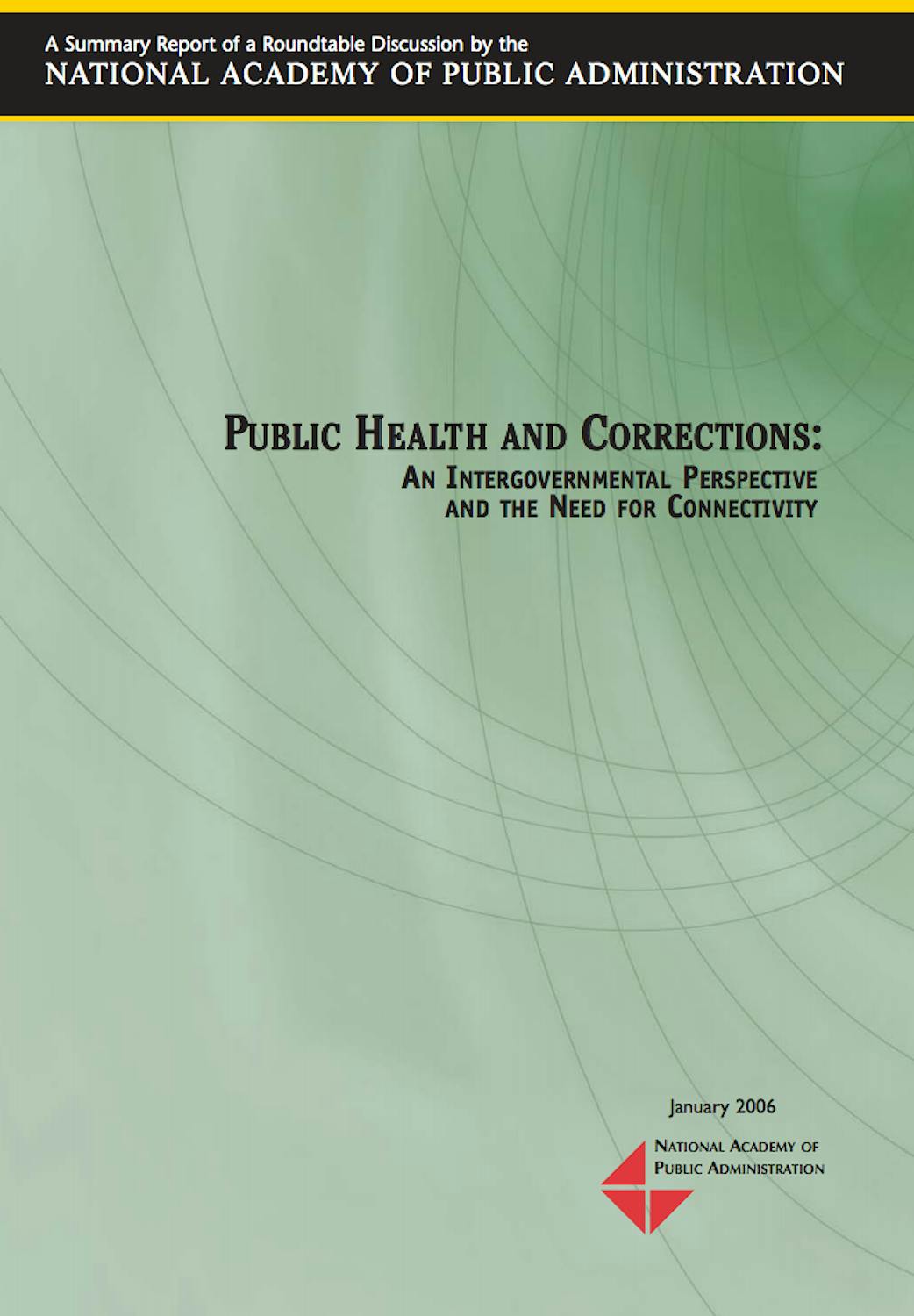
Public Health and Corrections: An Intergovernmental Perspective and the Need for Connectivity
On November 28, 2005, the Academy’s Prisons Positioning Committee and Center for Intergovernmental Relations convened a roundtable discussion with experts from the fields of criminal justice, public health, academia, and public administration to discuss the following:
- The need for interconnectivity of the public health care system and the corrections system in the U.S.
- The impact of these systems on each other and on citizens-at-large
- Obstacles to interconnectivity, including cultural, intergovernmental, structural, information, and resource barriers
- Exemplar programs and success stories
- Potential avenues for future exploration and action
Click the button below to view the View Study Report.
View ReportKey Findings
The purpose of the roundtable was twofold:
- to increase awareness of these complex issues by various stakeholders, and
- to develop recommendations for specific action steps, future study, and possible avenues for the development of a national model of interconnectivity. The roundtable discussion and a summary of the discussion are presented in this report. A summary of key perceptions shared during the discussion and recommended next steps are presented below.
Recommendations
The expert participants (listed in the report) recommended that the Academy follow through and move forward on the following issues and recommendations discussed in the roundtable including:
- Develop a corrections research agenda of nationwide scope covering such matters as protocols, prioritizations, and a website including a repository of documents such as the mental health piece of the Consensus Report and the President’s New Freedom Commission Report;
- The National Academy of Sciences (NAS) and the National Institute of Justice (NIJ) should coordinate with agencies including the Centers for Disease Control and Prevention (CDC), the American Correctional Association (ACA), and the National Commission on Correctional Healthcare (NCCH); and
- Develop standards or guidelines for health care for prisoners reentering society. Once established, the bar could slowly be raised to enhance the levels of care.
